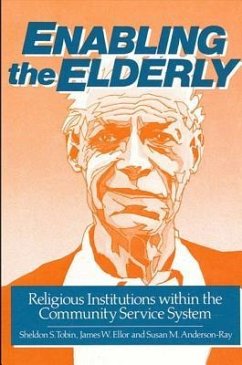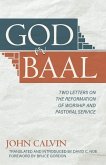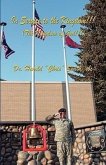Here three gerontological professionals have combined their diverse backgrounds in a timely and urgently needed study of how religious institutions interact with their communities to provide care for the elderly. In an easily accessible and well-written text, actual and potential services are described, and ways of enhancing religious/agency collaboration are suggested. Data are presented from studies in four communities and in a variety of provider settings. The book begins with an overview of aging in modern society, followed by a discussion of the vital importance of spiritual well-being for elderly women and men today. The authors show how church and synagogue can provide services for elderly persons, highlighting ways in which intentions can be translated into programs. A second section identifies diverse categories of elderly persons in the community and their physical, social, emotional, and spiritual needs. It suggests opportunities for religious organizations to address these needs, particularly through collaboration with service agencies. Programs currently provided by synagogues and churches are detailed. A final section examines the benefits of institutions working together with service agencies on potential problem areas. It provides ways to enhance the partnership--from simple communication, to cooperation, coordination, collaboration, and even confederation. The book concludes with a useful model, developed from the authors' original research, that can enhance interaction between churches and synagogues, and service agencies.
Hinweis: Dieser Artikel kann nur an eine deutsche Lieferadresse ausgeliefert werden.
Hinweis: Dieser Artikel kann nur an eine deutsche Lieferadresse ausgeliefert werden.








